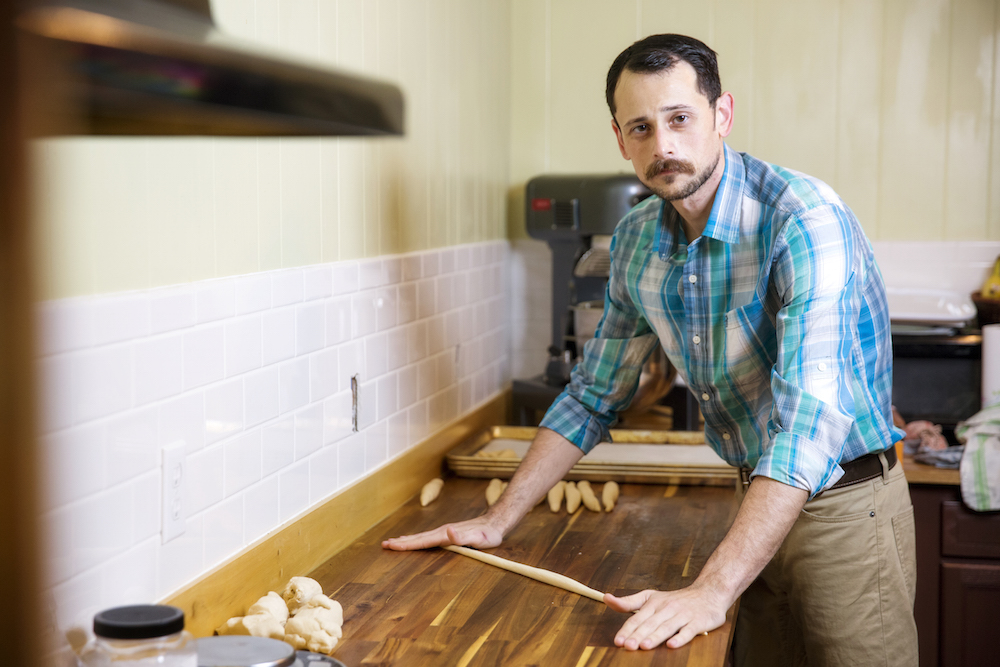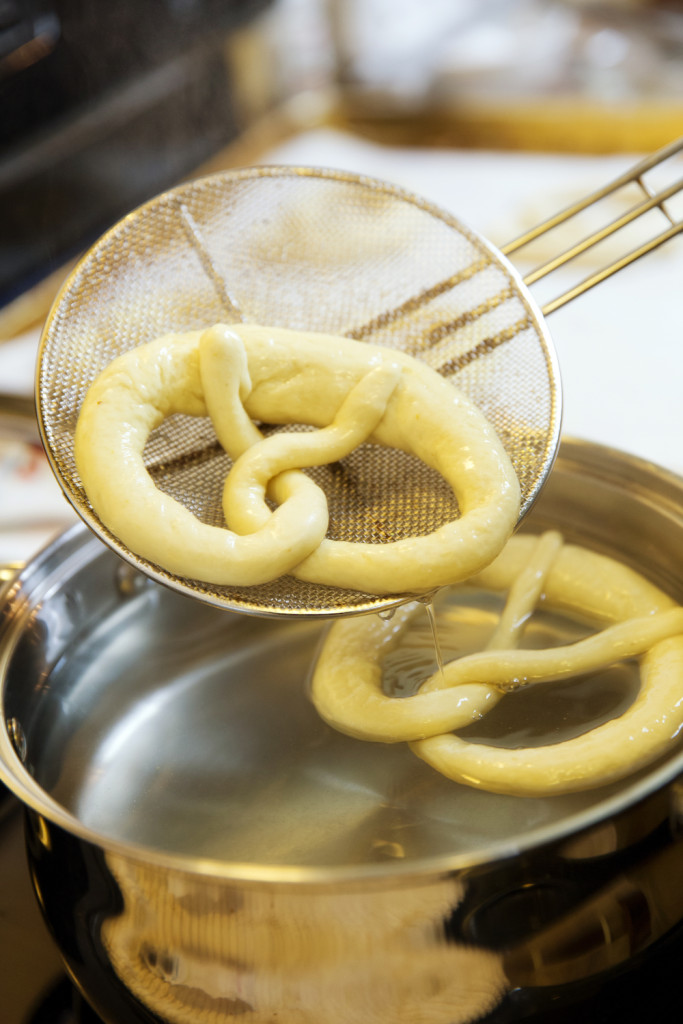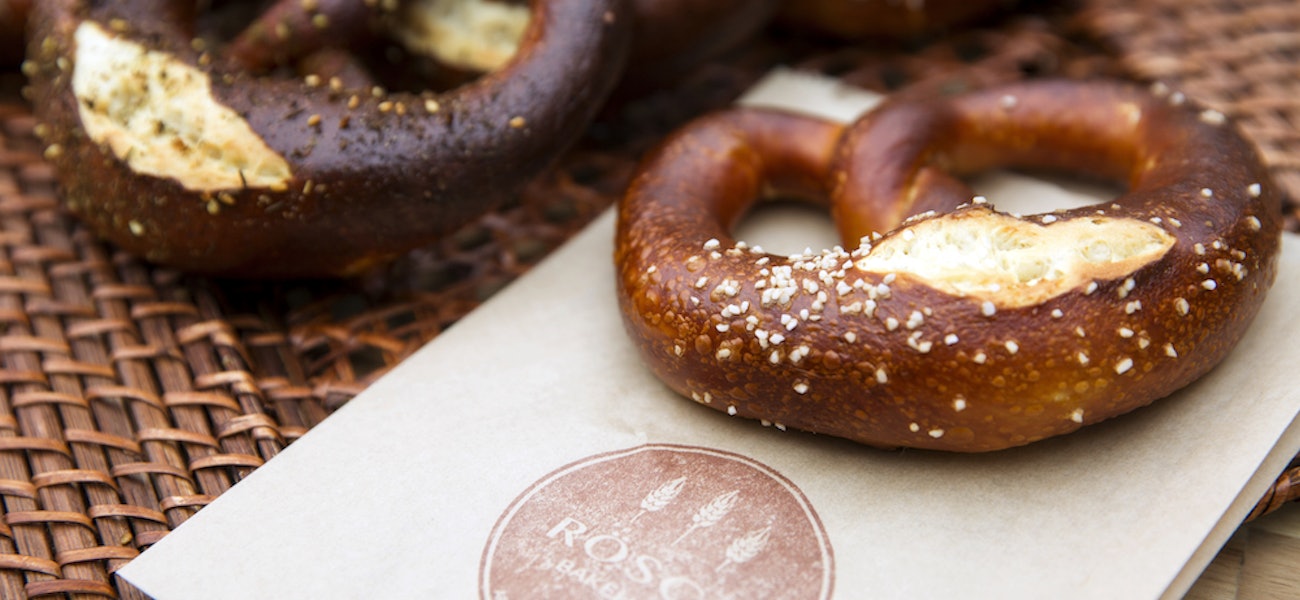In an age of commercialized specialty foods, when words like “organic” and “craft” start to seem meaningless, Jim Osborne is adamant about the true definition of “artisanal.”
“In the serious breadmaking world, ‘artisanal’ is a designation,” Osborne says. “It alludes to a process; it’s not just a marketing word. [Artisanal means] a very long, tedious process to develop flavors in the dough.”
Osborne’s one-man pretzel operation, Rösch Bakehaus, began by chance about a year ago. He’d spent months picking up the art of traditional pretzel-making while visiting his family’s native Germany, learning how to perfect the dough and balance flavors from chef Lisa Cramer von Clausbruch and her foodie husband Andreas. Already a commercial photographer for Lee Michaels and adjunct professor at LSU, the 33-year-old Osborne saw baking mostly as a hobby until he brought a batch of pretzels to a neighbor as a thank-you gift.
|
|
|
That neighbor happened to be former City Pork executive chef Sean Rivera, and he fell so hard for the pretzels that he insisted Osborne bake buns for City Pork specials.
Now Rösch Bakehaus’ pretzels hold a permanent residence on the food menu chalkboard at The Bulldog and frequently pop up in specials at City Pork locations, as well as making appearances at Rosemary’s Kitchen in Ruston, Freret Market in New Orleans and festivals across the South.
In Osborne’s home kitchen, a massive mixer stands at the corner of the butcher block countertops, a sturdy model to keep up with the heavy doughs he favors. A commercial-sized cooling rack stacked with baking sheets waits against one wall for another batch. Osborne spends hours in this kitchen moving meticulously through the traditional process of pretzel-making.

“[‘Artisanal’] alludes to a process; it’s not just a marketing word.”
—Rösch Bakehaus founder Jim Osborne
Osborne’s day typically starts at 3 a.m., taking about 15 hours to prepare a batch of three dozen pretzels. The dough is first mixed and kneaded then put through a cold proof—the long fermentation that differentiates commercial bread from artisanal bread. After being stretched and shaped by hand, the pretzels are dipped in lye, which is rendered inert while baking in the commercial oven Osborne keeps in his garage. Unlike more bagel-like American pretzels, those made with this German lye technique develop a richer, darker, crispier crust with soft insides.
Technique isn’t all that sets Rösch Bakehaus pretzels apart from the legions of soft mall pretzels. Osborne loves experimenting with flavors, and some of his special batches have included sweet cornbread pretzel rolls with chives and cracklins, dark chocolate pretzels with dried orange peel and lavender salt and a Bavarian pretzel king cake with spiced Bosch pear filling and orange blossom icing.
“We have the core product line … but the fun part of this is doing custom things for people,” Osborne says. “Anyone can call and say, ‘Hey, I want something that’s never been done before.’”
|
|
|
With dough in hand, Osborne is up to the challenge.
“It’s sort of a religious experience,” Osborne says of working with the dough. “It’s methodical. It’s very physical. You’re manipulating this living thing, and it has to be coerced into doing what you want it to do. That’s the beauty of it.”







